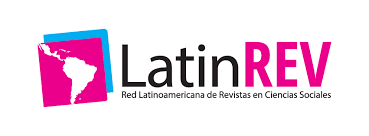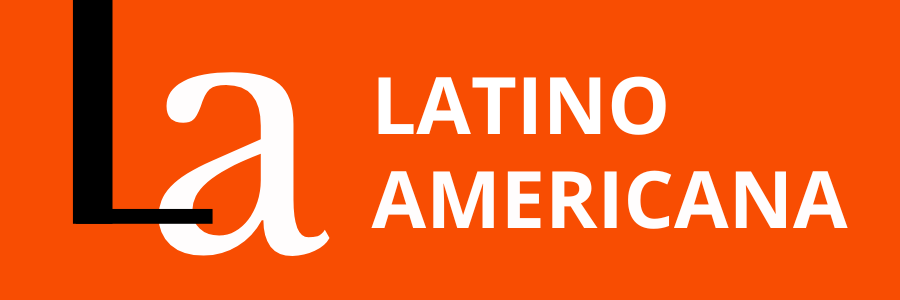Impact of specific responsibilities on ethical principles, Big Four of Metropolitan Lima, 2022
DOI:
https://doi.org/10.62939/debehaber202422Keywords:
ISA 220, IFAC, Ethical principles, Big Four, Specific responsibilitiesAbstract
Lately, because of frequent cases of financial problems worldwide, efforts have been made to prepare and present transparent financial information under standards that ensure its veracity. Therefore, the reason for writing this article lies in making known the impact of the specific responsibilities of the auditor according to the International Standard on Auditing 220, hereinafter ISA 220, on the ethical principles according to the code of ethics developed by the International Federation of Accountants, or IFAC for its acronym in English, in the main auditing firms called Big Four, in which PricewaterhouseCoopers (PWC), KPMG, Ernst & Young (EY) and Deloitte are considered, in Metropolitan Lima in 2022, taking as The objective is to analyze the impact of the auditor's specific responsibilities regarding the initial evaluation, communication and behavior of the auditor on the IFAC ethical principles. It will be explained in a descriptive manner to be clear about the specific responsibilities of the auditor and the IFAC ethical principles. Likewise, said information was compiled from studies carried out in other countries, NIA 220 and IFAC. Regarding the research methodology, it is descriptive with a mixed approach since surveys and interviews were carried out. The results show that the specific responsibilities of the auditor do have an impact on the ethical principles established by the IFAC in its code of ethics, concluding that ethics is directly related to the auditor's work tasks and attitudes
Downloads
References
Al-Ansi, A. (2022). Is the impact of audit effort on quality of auditors’ performance contingent on virtual audit proficiency? An auditors’ perspective during the COVID-19 pandemic. Cogent Business and Management, 9(1). https://doi.org/10.1080/23311975.2022.2144704
Álvarez López, A. & Morales Alvarado, L. (2018). La regulación en la calidad del trabajo de auditoría: análisis global para un contexto local (Perú). Revista La Junta, 1(1), 16–27. https://doi.org/10.53641/junta.v1i1.2
Chan, S. & Song, Q. (2021). Insight into the process of responsibility judgment of an audit failure. International Journal of Accounting and Information Management, 29(1), 67–90. https://doi.org/10.1108/IJAIM-06-2020-0083
Chen Mok, S. (2010). Privacidad y protección de datos: un análisis de legislación comparada. Diálogos Revista Electrónica de Historia, 11(1), 111–152. https://www.scielo.sa.cr/scielo.php?pid=S1409-469X2010000100004&script=sci_arttext
Clements, C., Neill, J. & Stovall, O. (2009). An analysis of international accounting codes of conduct. Journal of Business Ethics, 87(SUPPL. 1), 173–183. https://doi.org/10.1007/s10551-008-9811-3
Curiñahui-Ingaroca, A. (2019). Importancia del control de calidad sobre las empresas auditoras nia 220. Gaceta Científica, 5(2), 108–114. [Revisado el 6 de setiembre de 2023] http://revistas.unheval.edu.pe/index.php/gacien
Fakhfakh, M. (2016). Linguistic performance and legibility of auditors’ reports with modified opinions: An advanced investigation based on the ISAs on audit reports. Asian Review of Accounting, 24(1), 105–130. https://doi.org/10.1108/ARA-02-2014-0021
Gamboa Suarez, R. & Jiménez Rodríguez, L. (2017). Importancia del control de calidad sobre las empresas auditoras nia 220. Revista Científica Profundidad Construyendo Futuro, 6(6), 2–13. http://orcid.org/0000-0002-5727http://orcid.org/0000-0001-8656
Gutiérrez Echeverría, K., Llanes Sánchez, J. & Suárez Pupo, J. (2020). Auditoría del desempeño ético empresarial. Cofin Habana, 14(2). http://scielo.sld.cu/scielo.php?pid=S2073-60612020000200006&script=sci_arttext&tlng=en
Hegazy, M. & Tawfik, M. (2015). Performance measurement systems in auditing firms: Challenges and other behavioural aspects. Journal of Accounting in Emerging Economies, 5(4), 395–423. https://doi.org/10.1108/JAEE-04-2012-0014
Hernández-Gil, C., Losada-Rodríguez, N. & Orozco-Calderón, D. (2019). La influencia de la contabilidad creativa en la ética profesional del contador público. Revista de Investigación, Desarrollo e Innovación, 10(1), 53–65. https://doi.org/10.19053/20278306.v10.n1.2019.10011
International Auditing and Assurance Standars Board. (2020). IAASB-International-Standard-Auditing-220-Revised-ESP. https://www.ifac.org/_flysystem/azure-private/publications/files/IAASB-International-Standard-Auditing-220-Revised-ESP.pdf
International Ethics Standards Board for Accountants. (2018). Código Internacional de Ética para Profesionales de la Contabilidad. https://www.ifac.org/_flysystem/azure-private/publications/files/Final-Pronouncement-The-Restructured-Code-ES.pdf
Jeppesen, K. (2019). The role of auditing in the fight against corruption. British Accounting Review, 51(5). https://doi.org/10.1016/j.bar.2018.06.001
Khalil, S. & Nehme, R. (2023). Performance evaluations and junior auditors’ attitude to audit behavior: a gender and culture comparative study. Meditari Accountancy Research, 31(2), 239–257. https://doi.org/10.1108/MEDAR-04-2021-1285
Kroon, N. & Alves, M. (2023). Fifteen Years of Accounting Professional’s Competencies Supply and Demand: Evidencing Actors, Competency Assessment Strategies, and ‘Top Three’ Competencies. In Administrative Sciences (Vol. 13, Issue 3, p. 70). MDPI. https://doi.org/10.3390/admsci13030070
Ortega, O. (2022). Norma Internacional de Auditoría 220-ES revisada, gestión de la CALIDAD de una auditoría de estados financieros (NIA-ES 220 R). Técnica Contable y Financiera, 55, 82–94. https://ebsco.upc.elogim.com/login.aspx?direct=true&db=bsu&AN=159113684&lang=es
Ortigoza, M. (2012). El método Fuzzy-Delphi: un ejemplo numérico para calcular el tiempo de un cliente con la empresa en relaciones no contractuales. Anáhuac Journal, 12(1), 77–99. https://swebebsco.upc.elogim.com/ehost/detail/detail?vid=0&sid=be268120-4a0a-4a17-a88f-228efbcb1353%40redis&bdata=Jmxhbmc9ZXM%3d#db=fap&AN=77392987
Oulasvirta, L. (2014). The reluctance of a developed country to choose International Public Sector Accounting Standards of the IFAC. A critical case study. Critical Perspectives on Accounting, 25(3), 272–285. https://doi.org/10.1016/j.cpa.2012.12.001
Parrado Rincon, W., Gutiérrez Ladino, E. & Rodríguez Ruiz, J. (2018). Norma internacional de auditoría (NIA) 220: control de calidad para auditorías de información financiera histórica y el desempeño del auditor externo. Revista GEON (Gestión, Organizaciones y Negocios), 5(1). https://doi.org/10.22579/23463910.11
Popoola, A., Adeyemi, A. & Temitope, I. (2020). Global Accounting Regulation: Impact of IFAC on Financial Reporting Quality. International Journal of Engineering Technologies and Management Research, 4(8), 1–7. https://doi.org/10.29121/ijetmr.v4.i8.2017.76
Ramos, C. (2020). Los alcances de una investigación. Revista de divulgación científica de la Universidad Tecnológica Indoamérica, Vol. 9, Nº. 3, 2020, 1– 6. https://dialnet.unirioja.es/servlet/articulo?codigo=7746475
Rogošić, A. & Perica, I. (2023). Affective professional commitment and accounting ethics principles: examining the mediating role of the code of ethics. Economic Research-Ekonomska Istrazivanja, 36(1), 480–498. https://doi.org/10.1080/1331677X.2022.2077791
Sarapaivanich, N., Ekasingh, E., Sampet, J. & Patterson, P. (2023). SME clients evaluation of audit quality: the roles of auditors’ communication effectiveness, rapport and social capital. Journal of Accounting in Emerging Economies. https://doi.org/10.1108/JAEE-10-2022-0300
Serrano-Madrid, J., Bustos-Contell, E., Porcuna-Enguix, L. & Labatut-Serer, G. (2022). The origin of the auditor’s income and audit quality: The Spanish case. Revista de Contabilidad-Spanish Accounting Review, 25(2), 302–315. https://doi.org/10.6018/RCSAR.430531
Superintendencia del Mercado de Valores. (2013). Ley de Mercado de Valores. https://www.smv.gob.pe/uploads/PeruLeyMercadoValores_002.pdf
Tweedie, D., Dyball, M., Hazelton, J. & Wright, S. (2013). Teaching Global Ethical Standards: A Case and Strategy for Broadening the Accounting Ethics Curriculum. Journal of Business Ethics, 115(1), 1–15. https://doi.org/10.1007/s10551-012-1364-9
Zhang, Y. & Wei, L. (2022). Philanthropy, audit firms culture and auditor independence. PLoS ONE, 17(11), 1–25. https://doi.org/10.1371/journal.pone.0277567
Downloads
Published
How to Cite
Issue
Section
License
Copyright (c) 2024 Rodrigo Gianfranco Vicharra Castilla, Dennis Paul Pérez Grijalva, Aracely Quintero Carbajal, Oscar Joel Torres Arrunategui, Carmen del Rosario Villavicencio Laca

This work is licensed under a Creative Commons Attribution 4.0 International License.














